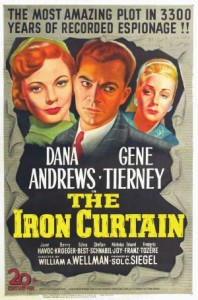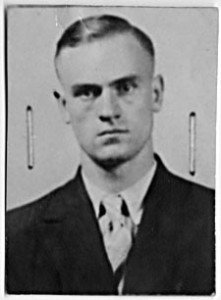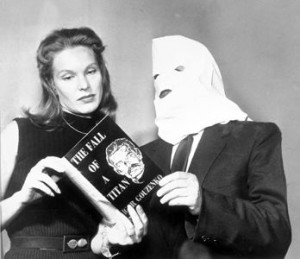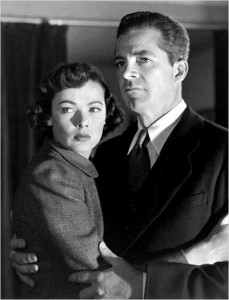I’ve been a lifelong fan of the spy genre. While family and friends were reading books like the Lord of the Rings, I was reading books like The Bourne Identity (which is *nothing* like the movie). I also have a love of my hometown, Ottawa. Though Ottawa has a reputation today of being a quiet and sedate town for the most part, it was a different story 50 years ago. During World War II, Ottawa shared in the Allied war effort, and established itself as a staunch friend to both the British and the US. Ottawa was represented in the Hollywood war effort as well, featured prominently in the 1942 James Cagney film Captains of the Clouds. The year after Captains was released, a cipher clerk arrived in Ottawa to begin a career at the Russian Embassy. His name was Igor Gouzenko, and his story would fundamentally change the world.
For those not familiar with his story, Igor Gouzenko was a clerk in the Soviet Embassy in Ottawa from 1943-1945. During the final years of the war, he had access to all the top secret information coming out of the Embassy. This included information that the Soviets had no reason to know, which was evidence of a massive Soviet spy ring operating in Canada. By 1945, the Soviets were ready to call Gouzenko and his family back to Moscow, but Igor wasn’t willing to go. Instead, he walked out of the Embassy one evening with documentation of the spy ring, and went off to find someone to tell his story to. Unbelievably, he couldn’t find anyone initially interested in his story, and he spent most of his time playing cat and mouse with Soviet security agents, who had by now become aware of the missing documents and were actively searching for him. This would eventually result in a confrontation between Soviet agents and the Ottawa police, when the Soviets were found looking through Gouzenko’s home. By the next day, Gouzenko was telling his story to the RCMP, and later MI5 and the FBI. As a result, the potential for Soviet spies working in the West became a major source of concern, and the rooting out of such spies a tip priority in all areas of Western society. Gouzenko and his family were given asylum by the Canadian government, and spent the rest of their lives in witness protection.
I’ve known about Gouzenko’s story since I was a teenager, but I had no idea that his story had ever been told on film. Then, back in 2012, I discovered that there was going to be a showing of a film called The Iron Curtain, filmed in 1948, which told Gouzenko’s story. The film was directed by William A. Wellman, known for films such as The Public Enemy (1931), A Star is Born (1937), and The Ox-Bow Incident (1943). The film stars Dana Andrews and Gene Tierney in their third of five movies together, and their first movie together since the classic noir Laura (1944). Andrews played Igor Gouzenko, and Gene Tierney his wife. The film, to my delight, was actually shot in Ottawa, and not on Hollywood soundstages (or at least, had extensive Ottawa filming).
As Igor Gouzenko, Dana Andrews plays it very quiet and straightforward; he starts the film as a man who has come to Ottawa to do his job, and obeys the rules set down by Soviet security. It’s only after his wife joins him in Ottawa that he starts to question life under Soviet rule. Andrews and Tierney work very well together, and there are some very tense moments after the defection that comes across very well. They successfully establish the panic that must have been going through their minds when they realize that protection and help from the Canadians aren’t coming immediately. I also loved seeing the glimpse of Ottawa as it was back then, recognizing various snow-covered landmarks. It is a very straightforward retelling of one of the key moments in Canadian history.
A quick little postscript for this blogpost: it turns out that, while this is the first movie to focus on Igor Gouzenko’s defection (that I know of), it is not, in fact, the only movie made about Igor Gouzenko. In 1954, United Artists released Operation Manhunt, which also told the Gouzenko story. By all accounts, its focus was more on the Soviet response to Gouzenko’s defection, with assassins sent to Canada to murder him. It is, unfortunately, a film I’ve never seen, so I can’t give any great details about it. But if I ever get the chance to see the entire film, I certainly will. The Gouzenko Affair was such a crucial moment for Canada in world history, and deserves to be told again and again.






